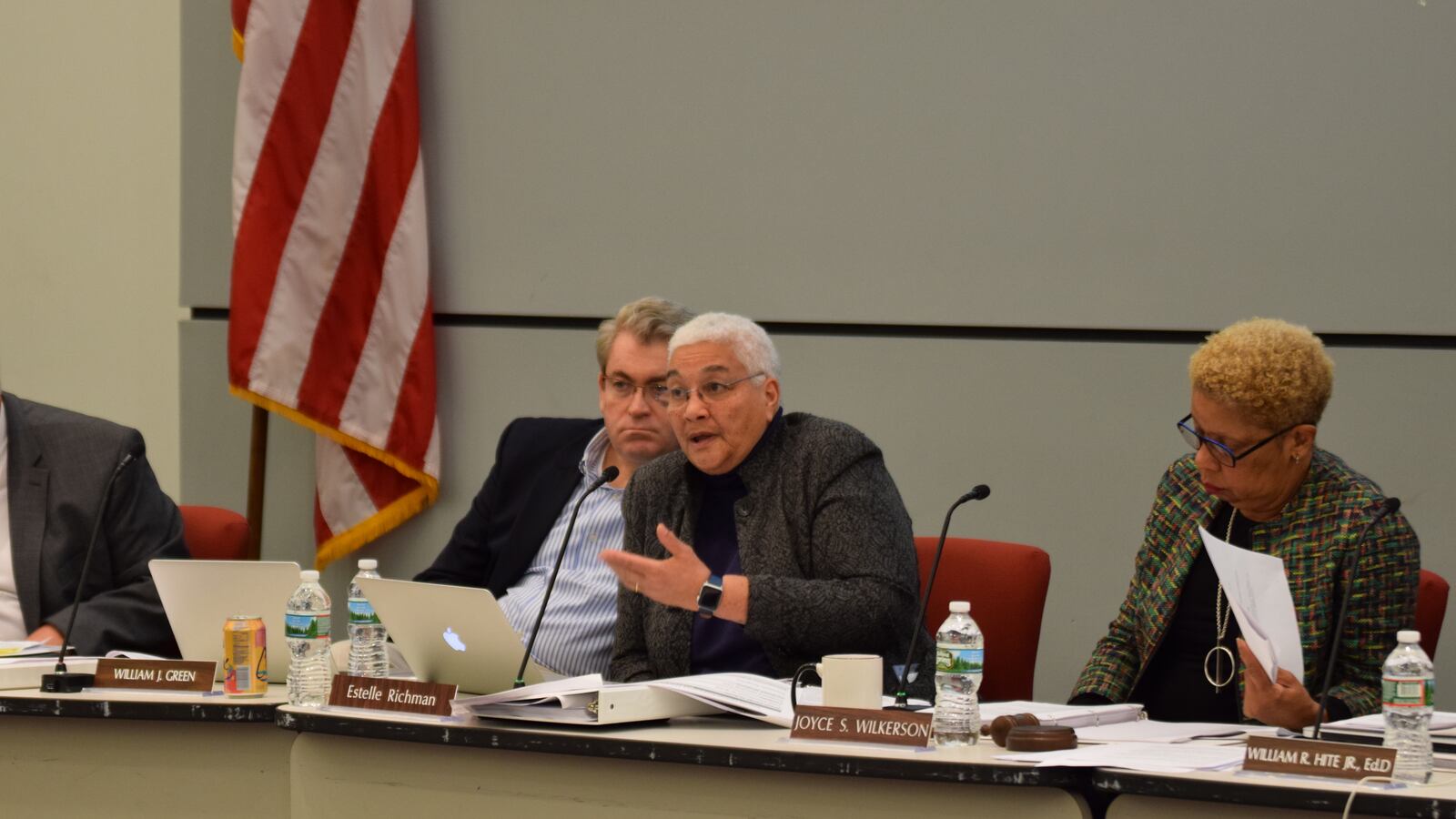This article was originally published in The Notebook. In August 2020, The Notebook became Chalkbeat Philadelphia.
A school choice advocacy group is suing the School Reform Commission, seeking to block enforcement of its recently adopted Policy 406, which outlines the terms under which charter schools can amend their agreements regarding curriculum, facilities, and enrollment.
Excellent Schools PA, formerly Philadelphia School Advocacy Partners, says the policy violates Pennsylvania’s charter school law. The suit was filed in Common Pleas Court.
The policy, the complaint says, was “hastily drafted” and “is an attempt to diminish the autonomy granted to charter schools under the law.”
The policy, originally drafted during the fall, was finally approved by the SRC in March after several public hearings at which representatives of charter schools appeared and offered testimony. However, they had sought private negotiations and the formation of a task force to jointly work out the policy.
The request for private meetings was denied by the chair of the SRC’s policy committee, Christopher McGinley. While not commenting on the lawsuit, he said that the policy was “adopted in a public process and with a great level of participation on the part of charter school providers.”
Excellent Schools PA executive director Steven DeMaura said in a statement that the policy “has no other purpose except to restrict the operation and growth of charter schools in Philadelphia. And while the SRC will cease to exist on July 1st, unfortunately Policy 406 will remain on the books until it is changed, or overturned in court.”
The SRC, which has governed the District since 2001 after a state takeover, will be replaced by a nine-member Board of Education appointed by Mayor Kenney.
DeMaura said that the District “constantly oversteps its boundaries and disregards best practices” in authorizing and monitoring charters. He called the policy “an attack on the 70,000 students and their families who have chosen to attend a charter school to escape low-achieving neighborhood schools.”
SRC Chair Estelle Richman issued a statement calling the lawsuit a “distraction” and rebutting the charter lobby’s claim that they had no input into the revisions.
“Until the revision of Policy 406, charter schools had no clear and predictable way to amend their charters mid-term,” Richman said. “This limited charters in their ability to improve educational opportunities for Philadelphia’s public school students.”
Richman said that the “SRC listened to the charter community intently in public forums” and that the revised policy allows the SRC to “accept, process and review midterm charter amendments through a transparent and predictable process that will benefit students, families and charter schools.” Some charters have already begun to submit amendments, she said.
The lawsuit represents the latest salvo in the protracted struggle between the District and charter leaders over the degree of autonomy that charter schools have. Under the state’s charter law, school districts are the only entities empowered to authorize charters.
However, the funding mechanism is set up in such a way that charter schools must compete for funds from the districts in which they are located, and state education aid has not kept up with need – especially in Philadelphia, which has half of the charter schools in the state. As a result, there is a natural competition that has festered without a solution for years.
Excellent Schools PA has decided to go to the mat over this policy. About 20 charters have refused to sign their charter agreements with the District over similar complaints that the SRC and its Charter Schools Office are overreaching and breaking the law in some demands, especially about enrollment caps.
Although the charter law says that districts are not to consider the financial impact in deciding whether to approve any given charter school, Philadelphia District officials have long argued that it cannot remain sustainable if it can’t control charter growth and approve charters in areas where there is a lack of good District options. Charters now educate about 70,000 students, or about one-third of the 200,000 in the city in publicly funded schools.
The lawsuit argues that the policy “was not a revision [but] a wholesale change,” and contains “elements that are contrary to” the charter law, including the imposition of enrollment caps and the limitation of how many amendments could be considered during one charter term.
McGinley said, “I believe Policy 406 is a responsible policy on the part of the School District and is respectful of the autonomy of charter schools, but also speaks to the responsibility that the School District has to ensure that charter schools are complying with the law.”
McGinley will be a member of the new school board; Richman will not.
During the process, McGinley said that the SRC and the charter office were seeking to have jurisdiction over big changes, such as changing the theme of a charter school, say, from the arts to STEM, or moving to another part of the city. It was not seeking to micromanage charters, he said.
The Charter Schools Office over the last several years has stepped up its monitoring of charter schools, scrutinizing their finances, operations, and academics.
There are 87 charter schools in Philadelphia. Nearly two dozen of them were low-achieving District schools that were turned over by the District to charter operators.


